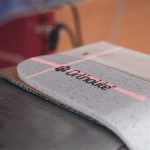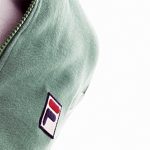Winchester’s sales grew 93.8 percent in the third quarter to $400 million from $206.4 million in the year-ago third quarter, boosted by strong hunting demand stemming from the pandemic experience.
The results were revealed in the third-quarter report of Winchester’s parent, Olin Corp.
The growth was primarily due to higher commercial and military sales and benefited from Winchester’s assumption last October of full management and operational control of the Lake City Army Ammunition Plant in Independence, MO. The U.S. Army had selected Winchester to operate and manage the Lake City Plant in September 2019.
The year-over-year gains also reflected higher commercial ammunition pricing that helped offset commodity costs. Third-quarter 2021 segment earnings in the Winchester segment were $115.3 million compared to $21.0 million in the third quarter 2020.
On a sequential basis comparing third-quarter to second-quarter results, sales declined 1 percent to $400 million from $404 million. Adjusted EBITDA rose 5 percent on a sequential basis to $121 million from $115.4 million.
On a call with analysts, Olin officials noted that the ammunition brand continues to look to capitalize on the 57 million new recreational shooting participants that have arrived since the pandemic emerged and the overall addressable market of over 200 million people across demographics and ages.
The brand is launching a Shoot United program to further ignite growth in recreational shooting. Brett Flaugher, president of Winchester and an Olin VP, said, “Shoot United is a sophisticated communication strategy to introduce all those fun facts and great things about the recreational shooting sports to those 200 plus million people.”
Olin officials also said they have no plans to sell or spin-off Winchester despite heightened investor attention to ESG (Environmental, Social and Governance). Scott Sutton, Olin’s president, CEO and chairman, said of Winchester, “This is a great business for us, it still has a lot of legs.”
Companywide, third-quarter net income was $390.7 million, or $2.38, which compares to a year-ago net loss of $736.8 million, or $4.67. Third-quarter adjusted EBITDA of $707.0 million excludes depreciation and amortization expense of $145.2 million and restructuring charges of $3.6 million. Third-quarter 2020 adjusted EBITDA was $195.5 million.
Sales were $2.34 billion compared to $1.44 billion million in the third quarter 2020. In its two other segments, Chlor Alkali Products and Vinyls sales were $1.06 billion compared to $755.1 million in the third quarter 2020. Epoxy sales were $877.7 million compared to $476.1 million in the third quarter 2020.
Sutton said, “Solid quarterly adjusted EBITDA was achieved despite production interruptions from hurricanes, raw material cost volatility, and supply-chain disruptions. Our third-quarter performance continues to demonstrate the resilience of our unique winning model that adapts in real-time to prioritize ‘value first’ amid a backdrop of improving structural fundamentals. Olin drove sequential pricing improvement in the third quarter 2021 for chlorine, chlorine derivatives, including epoxy resins, and caustic soda.
“We expect Chlor Alkali Products and Vinyls fourth quarter segment results to increase sequentially, while the Epoxy and Winchester segment fourth-quarter results are expected to seasonally decline from third quarter 2021 levels. Overall, we also expect fourth-quarter 2021 adjusted EBITDA to be comparable to or slightly lower than third quarter 2021 levels.”
Photo courtesy Winchester
















